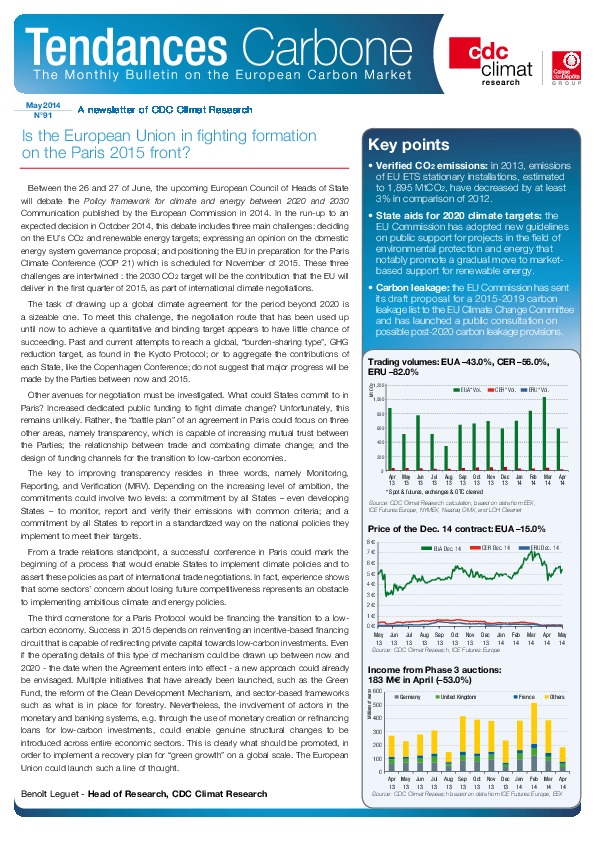Is the European Union in fighting formation on the Paris 2015 front?
![]() Verified CO2 emissions: in 2013, emissions of EU ETS stationary installations, estimated to 1,895 MtCO2, have decreased by at least 3% in comparison of 2012.
Verified CO2 emissions: in 2013, emissions of EU ETS stationary installations, estimated to 1,895 MtCO2, have decreased by at least 3% in comparison of 2012.
![]() State aids for 2020 climate targets: the EU Commission has adopted new guidelines on public support for projects in the field of environmental protection and energy that notably promote a gradual move to marketbased support for renewable energy.
State aids for 2020 climate targets: the EU Commission has adopted new guidelines on public support for projects in the field of environmental protection and energy that notably promote a gradual move to marketbased support for renewable energy.
![]() Carbon leakage: the EU Commission has sent its draft proposal for a 2015-2019 carbon leakage list to the EU Climate Change Committee and has launched a public consultation on possible post-2020 carbon leakage provisions.
Carbon leakage: the EU Commission has sent its draft proposal for a 2015-2019 carbon leakage list to the EU Climate Change Committee and has launched a public consultation on possible post-2020 carbon leakage provisions.

